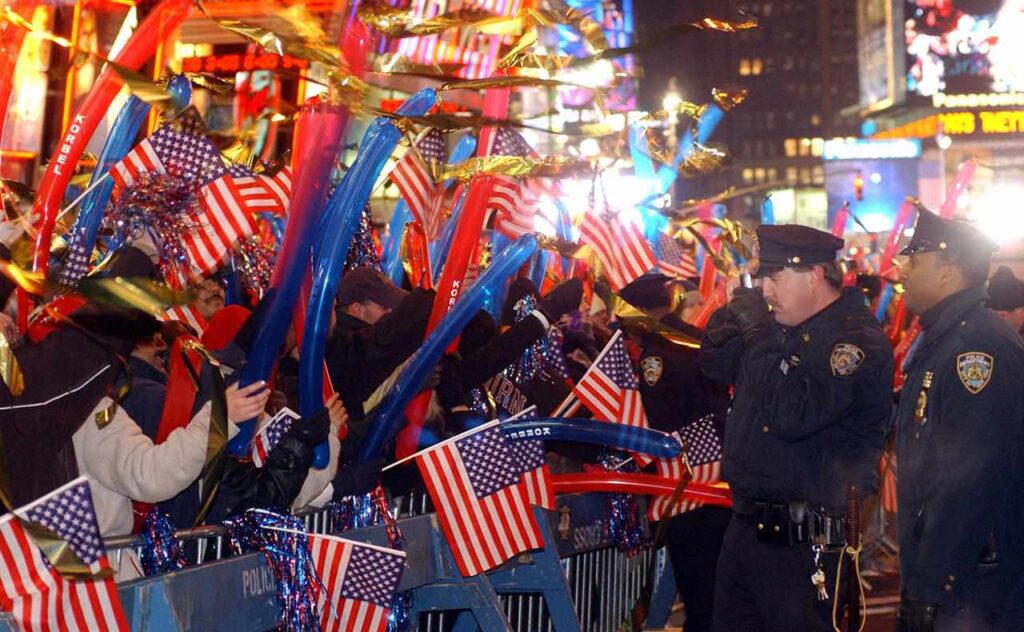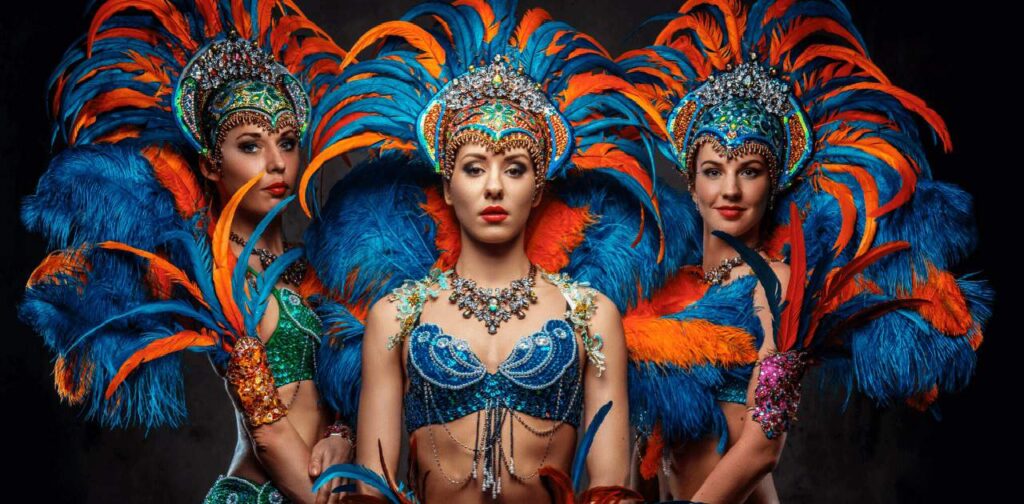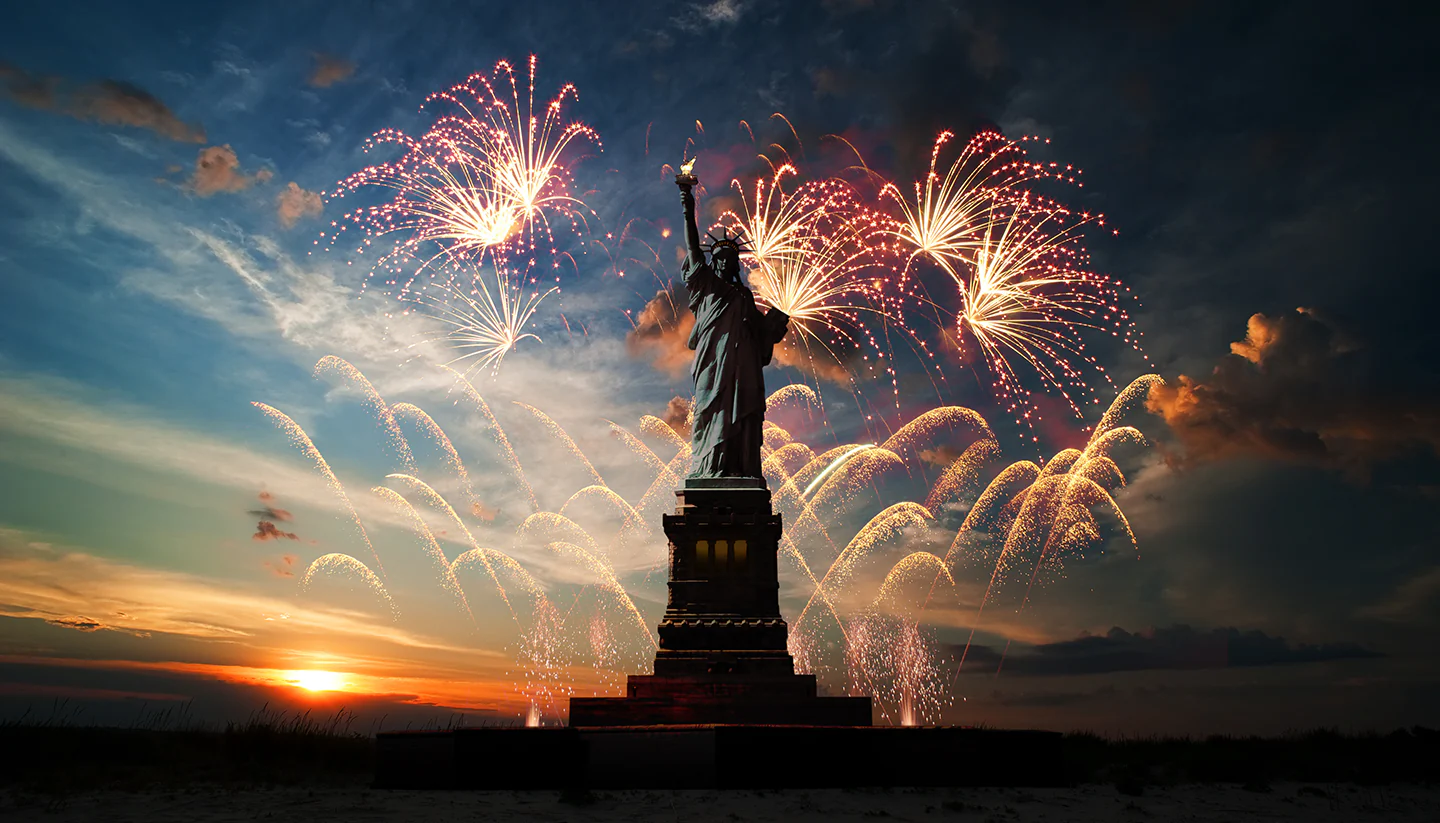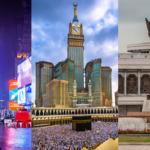Celebrating American Holidays are more than just days off—they’re a celebration of culture, history, and community. Whether it’s a federal holiday or a local celebration, these moments provide an opportunity to reflect, connect, and celebrate. Here’s a comprehensive guide to understanding and enjoying American holidays.
Major Federal Holidays in the United States

New Year’s Day (January 1)
The first day of the year marks a fresh start for many. Celebrated with fireworks, parties, and resolutions, it’s a time for renewal and goal-setting. Families and friends often gather to welcome the new year with joy and optimism.
Martin Luther King Jr. Day (Third Monday of January)
This day honors the life and achievements of Martin Luther King Jr., a key figure in the civil rights movement. People often observe the holiday by participating in community service and attending educational programs.
Presidents’ Day (Third Monday of February)
Presidents’ Day celebrates the birthdays of George Washington and Abraham Lincoln. It’s a time to reflect on the contributions of all U.S. presidents, with events often featuring historical reenactments and educational activities.
Memorial Day (Last Monday of May)
A solemn occasion, Memorial Day honors military personnel who have lost their lives in service to the nation. Families visit cemeteries, participate in parades, and gather for cookouts to remember and pay respects.
Independence Day (July 4)
The Fourth of July commemorates America’s independence from Britain. Festivities include vibrant fireworks displays, patriotic parades, and community events celebrating freedom and unity.
Labor Day (First Monday of September)
Labor Day is dedicated to the American workforce and their contributions to the nation’s progress. Parades, barbecues, and outdoor activities mark this unofficial end to summer.
Veterans Day (November 11)
This holiday honors all military veterans for their service. Communities host parades, ceremonies, and educational programs to show appreciation for those who have served in the armed forces.
Thanksgiving Day (Fourth Thursday of November)
Thanksgiving celebrates gratitude and togetherness, rooted in the tradition of sharing the harvest. Families come together for feasts featuring turkey, stuffing, and pies, often accompanied by parades and football games.
Christmas Day (December 25)
A cherished holiday, Christmas celebrates the birth of Jesus Christ. Traditions include decorating homes, exchanging gifts, and spending time with loved ones.
Cultural and Regional Celebrations

Halloween (October 31)
Known for costumes, trick-or-treating, and spooky decorations, Halloween is a playful celebration for all ages. Communities host haunted houses and costume parties, making it a fun-filled holiday.
Mardi Gras
Predominantly celebrated in Louisiana, Mardi Gras is a lively event featuring parades, masquerade balls, and street festivals. The vibrant colors and festive atmosphere make it a unique cultural experience.
Juneteenth (June 19)
Juneteenth commemorates the end of slavery in the United States. It’s marked by community gatherings, cultural festivals, and educational events that honor African American history and resilience.
Diwali
Although not a federal holiday, Diwali is increasingly recognized and celebrated in diverse communities. Known as the Festival of Lights, it features festive meals, cultural performances, and the lighting of lamps.
Modern Trends in Holiday Celebrations
Inclusive Celebrations
American holidays are becoming more inclusive, with communities embracing diverse traditions and cultures. This reflects the nation’s growing diversity and interconnectedness.
Sustainable Practices
Eco-conscious holiday practices are on the rise, with people opting for sustainable decorations, minimal waste, and mindful consumption.
Digital Celebrations
Virtual gatherings and online events have gained popularity, offering a way to connect with loved ones regardless of distance. This trend, accelerated by the pandemic, has reshaped how holidays are celebrated.
Tips for Participating in American Holiday Traditions

Learn the History
Understanding the origins and significance of holidays adds depth to your celebrations. Take time to explore the stories behind these traditions.
Join Community Events
Participating in local parades, festivals, and volunteer activities fosters a sense of belonging and community.
Embrace Diversity
Respect and celebrate the rich tapestry of cultural traditions that make American holidays unique. Being open to new experiences enhances the joy of celebration.
FAQs About Celebrating American Holidays
1. What are the most popular holidays celebrated in the United States?
Some of the most popular holidays in the U.S. include Independence Day (July 4), Thanksgiving Day (Fourth Thursday of November), Christmas Day (December 25), and New Year’s Day (January 1). These holidays are widely celebrated with unique traditions.
2. What is the significance of federal holidays in the United States?
Federal holidays are days designated by the government for nationwide observance. They often honor historical events, cultural milestones, or notable individuals, such as Martin Luther King Jr. Day or Presidents’ Day.
3. Are all holidays in the United States religious?
No, not all American holidays are religious. While holidays like Christmas and Easter have religious origins, others, like Independence Day and Labor Day, are secular and focus on national pride or societal achievements.
4. What are some regional holidays or celebrations in the U.S.?
Regional holidays include Mardi Gras in Louisiana, Juneteenth in Texas and beyond, and Pioneer Day in Utah. These celebrations often reflect local history and cultural traditions.
5. How do Americans typically celebrate national holidays?
Celebrations vary depending on the holiday but often include parades, fireworks, family gatherings, feasts, and cultural or community events. For example, Thanksgiving is celebrated with a traditional meal, while Independence Day features fireworks and barbecues.
6. Is Halloween considered a federal holiday?
No, Halloween is not a federal holiday. However, it is widely celebrated across the country with costume parties, trick-or-treating, and themed decorations.
7. What are some eco-friendly ways to celebrate American holidays?
Sustainable practices include using reusable decorations, opting for eco-friendly gift wrapping, reducing food waste, and supporting local businesses for holiday supplies.
8. Are there holidays that focus on service and giving back?
Yes, holidays like Martin Luther King Jr. Day encourage community service. Additionally, many people engage in charitable activities during Thanksgiving and Christmas, such as volunteering at food banks or donating to those in need.
9. What is the importance of Thanksgiving in American culture?
Thanksgiving is a time to express gratitude and spend quality time with family and friends. It also serves as a reminder of the country’s history and the importance of sharing and community.
10. How can newcomers to the U.S. participate in American holiday traditions?
Newcomers can start by learning about the significance of each holiday, attending local events, and engaging in common traditions like sharing meals, decorating, or volunteering. Communities are often welcoming and encourage participation.
11. Are American holidays celebrated differently in various parts of the country?
Yes, regional variations exist. For example, Mardi Gras is predominantly celebrated in Louisiana, while Juneteenth has a strong presence in Texas and other Southern states. These differences reflect the cultural diversity of the United States.
12. What are some modern trends in celebrating American holidays?
Modern trends include virtual celebrations, sustainable practices, and embracing diverse cultural traditions. Social media also plays a significant role in sharing and popularizing holiday traditions.
13. What is the best way to learn about American holiday traditions?
Attending local events, participating in community celebrations, and engaging with neighbors or friends are excellent ways to learn about and experience American holiday traditions firsthand.
14. Do Americans celebrate holidays from other cultures?
Yes, many Americans celebrate cultural holidays such as Diwali, Lunar New Year, and Cinco de Mayo. These celebrations highlight the country’s diversity and multiculturalism.
15. What are some tips for hosting a holiday celebration in the U.S.?
- Understand the holiday’s traditions and significance.
- Incorporate common activities like feasts, games, or decorations.
- Encourage inclusivity by respecting the cultural backgrounds of your guests.
Conclusion
American holidays are a beautiful reflection of the nation’s values, history, and diversity. Whether you’re a long-time participant or new to these traditions, there’s always something to learn and enjoy. So, mark your calendar, join the festivities, and embrace the spirit of celebration!




